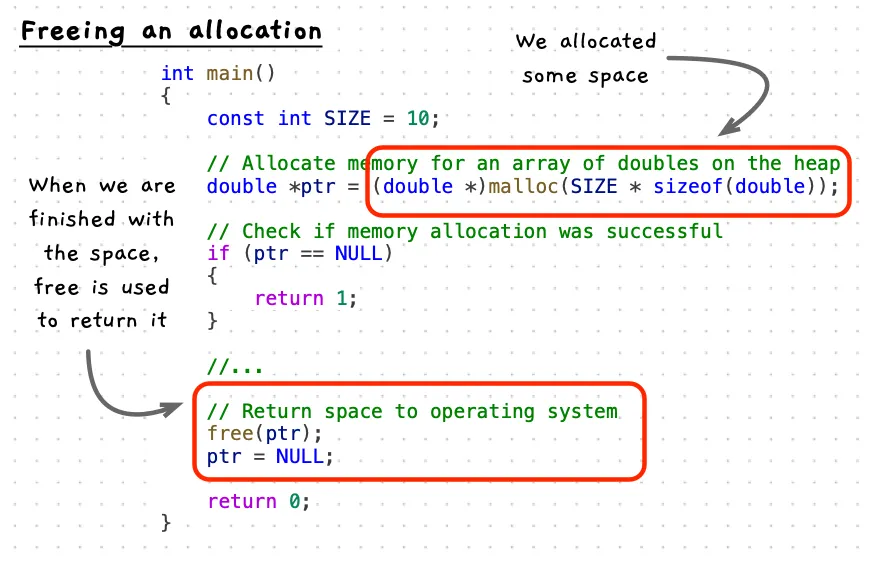Freeing Allocations
Memory is finite. When you allocate memory to your program, there is less memory available overall. So, when you are finished with a value on the heap, you need to free the allocation so that the memory can be used for other things.

Example Code
The following code uses free to return the allocated memory at the end of the program.
#include <stdlib.h>#include "splashkit.h"
using std::to_string;
int main(){ const int SIZE = 10;
// Allocate memory for an array of doubles on the heap double *ptr = (double *)malloc(SIZE * sizeof(double));
// Check if memory allocation was successful if (ptr == NULL) { write_line("Memory allocation failed"); return 1; }
// Assign a value to the allocated memory ptr[0] = 73.37; // or *ptr = 73.37; ptr[1] = 42.0; //...
// Print the value for(int i = 0; i < SIZE; i++) { write_line("Value at index " + to_string(i) + ": " + to_string(ptr[i])); }
// Free the allocated memory free(ptr); ptr = NULL;
return 0;}